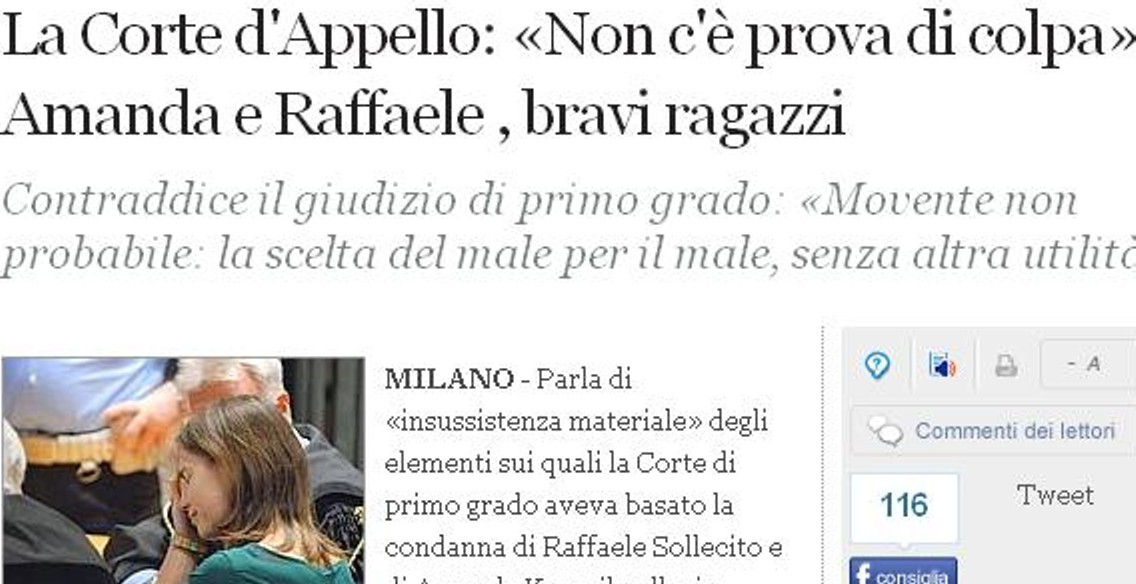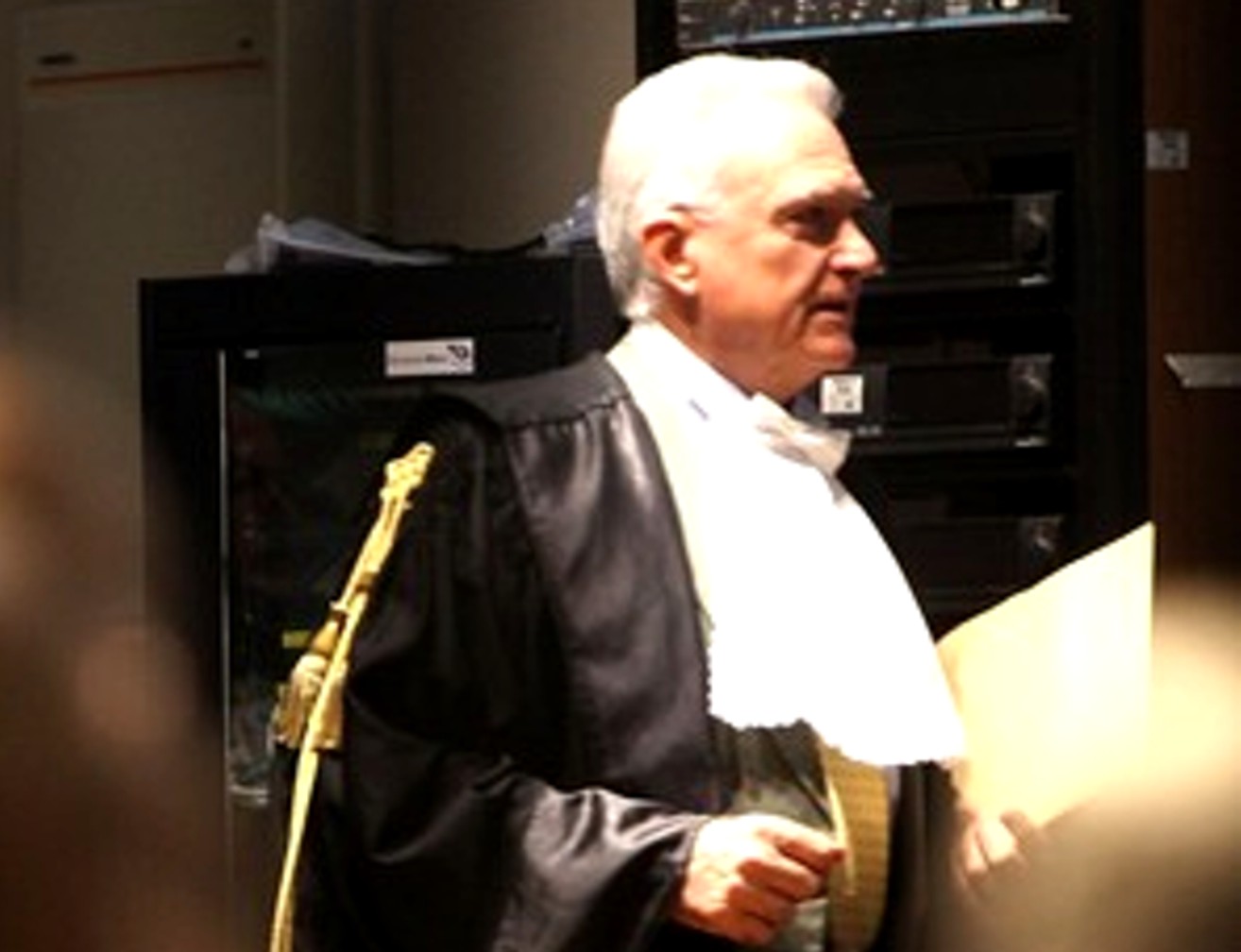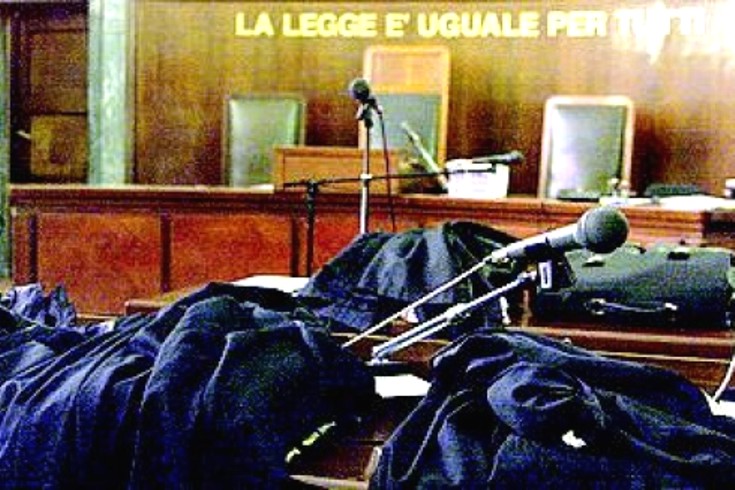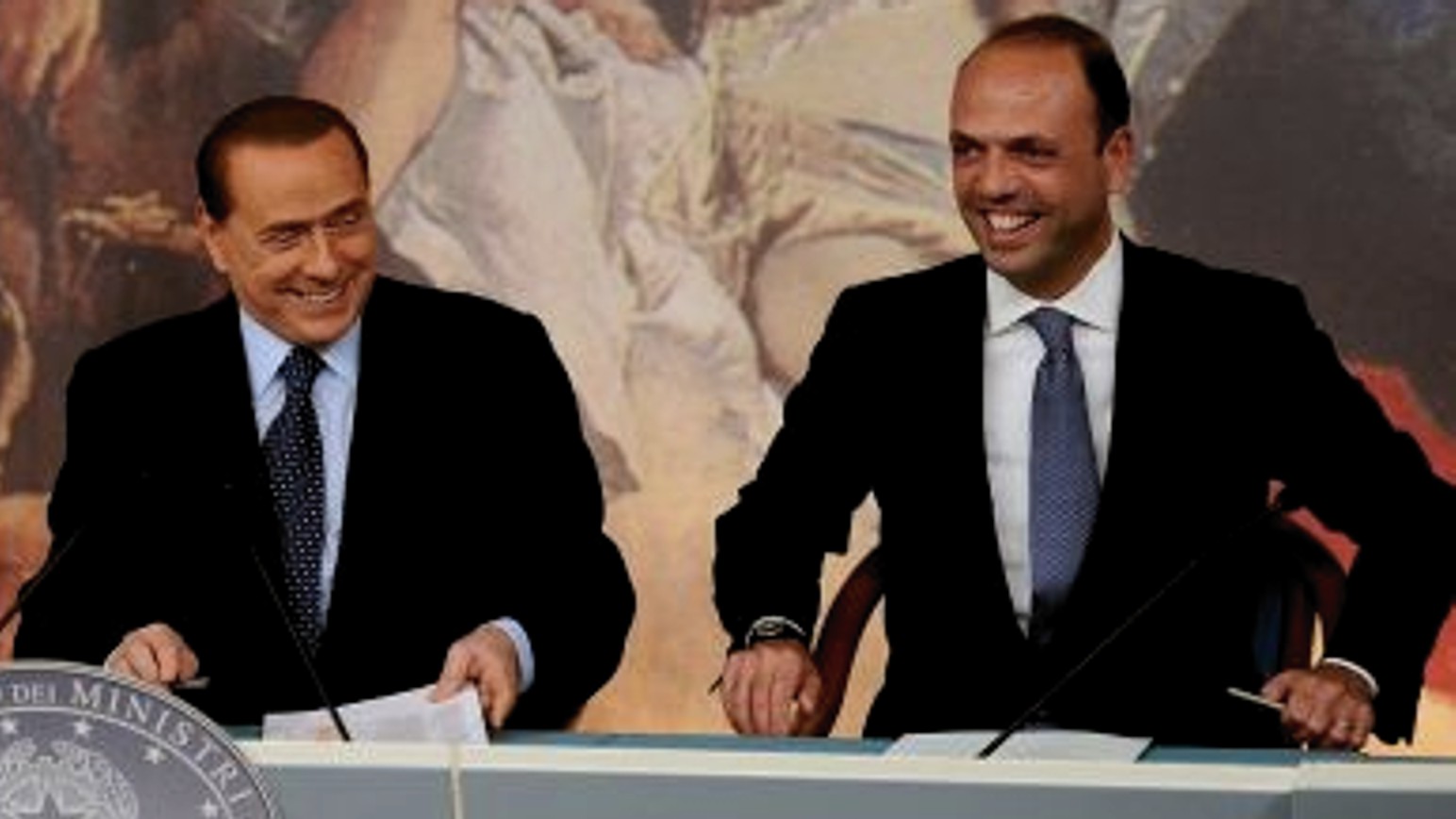
Tuesday, December 20, 2011
Crticism Of The Hellmann Verdict From Meredith’s Family’s Lawyer Francesco Maresca
Posted by ziaK

Mr Maresca made remarks last week critical of the verdict to various Italian media outlets. This is a translation from the Umbria Journal.
Maresca, on Mez: “They were acquitted for lack of proof, but the sentence takes a very one-sided approach”
“Only the defences’ expert witnesses were given any credence. It’s excessive to completely throw out the first instance case”.
The “reasoning report” of the Assizes court of appeal has confirmed that this is a case of an acquittal because of lack of evidence, rather than an acquittal with “formula piena” [approximately “proof of innocence without doubt”]
However it is also a sentence which is a result of a one-sided approach”.
This is the commentary of Francesco Maresca, who together with the lawyer Serena Perna, represents the young victim’s family, on reading of the “reasoning report” on the acquittal of Amanda Knox and Raffaele Sollecito on the charge of having murdered Meredith Kercher.
“This reasoning report”, he added, “leave us with an even more bitter taste in our mouths because we consider that the judges gave credence only to the defence-team experts, even on items of evidence of a scientific nature which were never the object of consultation”.
“For them to have completely tossed out the preliminary investigations and the first-instance trial seems excessive to me”....
“There are no great surprises”, said Prosecutor Manuela Comodi, who was prosecutor in the first and second-level trials. “It seems to me”, she added, “that there is a lot of room to challenge the sentence. That duty [however] lies entirely with the Attorney General.”
Saturday, December 17, 2011
Does A Perverse Fear Factor Account For The Hellmann Jury Breaking The Way It Did?
Posted by Peter Quennell

[Above: Italian criminologist Massimo Picozzi, a physician, psychiatrist, professor, author and TV host].
We have already posted on the increasingly notorious CSI Effect.
That’s the phenomenon where these days fearful juries can react ultra-cautiously against multiple ambiguous strands of evidence and become impatient with complex science. Among other things, they don’t want egg on their faces down the road .
Some of us who have now absorbed most of the Hellmann report released yesterday are noting two distinctive themes:
- A garbling of the law and the hard facts (one hard fact Hellmann garbled is that no-one has come close to proving that was Guede’s bare foot print on the bathroom mat, or explained when and why he took his shoes off);
- A sense of a condescending fury by this jury toward the jury at the first level (Massei’s trial panel) and the prosecution’s scientific experts; this is actually not a unique occurrence in Italy where appeals require whole new juries eager to strut their stuff.
Today on the Perugia Murder File Forum the Italian lawyer Yummi in part had this to say:
The parts that I found more dishonest and unacceptable are, however, those in the matter (and their omissions) rather than the mistakes in [legal] procedures. The “probable” attribution of the footprint to Guede is an example of insult to intelligence. I haven’t read thoroughly the entire document yet, but from what I’ve read I can say this document is a sloppy and shameful fraud.
I think what really matters - the actually “true” part of the document - is the conclusion, where the court explain that the reason for the acquittal was they were afraid. They thought they were in danger of making a mistake, they explain they felt unable to eliminate possibility of mistake. Their fear stemming from not being able to see a clear overall picture of the evidence and a motive is everything. Their fear, confusion and uncertainty is the ground for their lack of any indication even of the paragraph 1 or 2 [mandatory reason for the verdict].
Interviewed today by the Italian paper Corriere the eminent Italian criminologist Massimo Picozzi (image above), who knew of the Hellmann verdict but had not yet seen the Hellmann report, predicted very much the same thing.
Picozzi: A debate too technical for the jury
Interview of Massimo Picozzi by Leonardo di Molinelli
Corriere: What of the outcome of Perugia?
“I think it was already decided by the jury when there was a battle between consultants on a very technical issue, the contamination of some DNA.”
The criminologist Massimo Picozzi has not yet read the [Hellman] motivation of the absolution of Amanda Knox and Raffaele Sollecito, but he has a clear idea as to why the appeal outcome contradicted the first level outcome.
“The reasons can be stated in different ways but don’t bend one iota. The judgment is due to the fact that when expert consultants have been in dispute, and not only on the content of [some experts] report but also on the skills and qualifications of those experts, the battle becomes so complex that the jury loses the plot.”
Corriere: A controversy has diverted attention from the crime on a technicality?
“Reducing everything to a technical debate has created confusion that the jury was unable to handle. Often even [court] presidents, judges and magistrates are not as competent technically as the progress of science should require.
The prosecution’s DNA advisor Professor Novelli is a forensic geneticist at the international level. When he challenged the findings of the experts and proposed to the judge a third study, the president of the jury said “No thanks, we have enough.’”
Corriere: There are other cases like this? This is just an Italian problem?
“No. The distortion was introduced by TV series like CSI creating the effect that juries require new technologies but are not always prepared to understand them.
I could tell you that in the United States and Canada they are moving more and more into “neuroimaging” which is exploring uses of the nuclear magnetic resonance of genetic structures of criminals.
At this new frontier the accused can be acquitted because it can be assumed that having an MRI of a certain type and genetic constitution does not allow for the having of free will, and therefore they are acquitted for that failure. “
Corriere: [Norway’s mass murderer Anders] Breivik might be such a case?
“Yes, and behind these things it is easy to see a Lombrosian outcome.” [ed. note: said somewhat jokingly. Cesare Lombroso was an Italian doctor who invented the “antropologia criminale” in which criminals are born rather than self-made. ]
“There are at least a couple of facilities in the U.S. that offer screening based on CT and MRI for the recruitment of top managers. “
Corriere: What is the basic thrust?
“Criminal behavior is determined by a series of neurological factors, biological, genetic. In the U.S. and Canada juries hear battle of genetic structures, amygdala, and more. “
Corriere: It becomes very difficult for jurors to live up to?
“Absolutely, and one ends up saying “But how do we crack the structures of criminal behavior if we do not even know what is normal human behavior?” The latest branch of study that is spreading is neuroethics, the fact that we can have a certain neurological structure which does not have any area for ethical responsibility. “
Corriere: It is disturbing?
“Absolutely, we arrive back at the pre-crime state like that in [the movie] Minority Report. So in the end it does not work. “
Corriere: They were right on the Knox case, the American media?
“No. But we guaranteed that development too. The real problem is the length of our trials. If the [trial and first appeal] are compressed into two years instead of four that will eliminate much of the controversy. “
Corriere: Amanda and Raffaele are innocent?
“I prefer to say that they were found not guilty by one particular jury.”
Friday, December 16, 2011
Our Translation Of Today’s Corriere Newspaper Report On The Hellmann Motivation Document
Posted by ziaK

Click image above for the original. This is today’s straight reporting. In-depth commentary should start appearing soon.
The appeal court: “There is no proof of offence” : Amanda and Raffaele are good kids
The report contradicts the first instance judgment: “The motive - of an unplanned choice of evil without purpose by two good youngsters, who were well-disposed towards others - is improbable”
MILAN - The board of appeal judges, which acquitted the two young folk of the charge of having murdered Meredith Kercher, talks of the “essential baselessness” of the elements upon which the Court of the first instance based their conviction of Raffaele Sollecito and of Amanda Knox.“There is no proof of guilt” with regard to Amanda and Raffaele, writes the judges of the Appeal court of Perugia, in the “reasoning” report on the second-grade acquittal ruling, which was published on Thursday. This baselessness, according to the report, “takes precedence over even the equivocality of those same elements”.
“BUILDING BLOCKS” OF THE CONSTRUCTION - In the 144 pages which must be lodged before 3 January, the judges who wrote the report claim that “those same building blocks” which led the first-instance judges to convict Raffaele Sollecito and Amanda Knox “had failed”. “The Assizes Court of the first instance felt the need to seize upon a motive which, however, while it was not corroborrated by any element of proof, was in itself entirely improbable”, says the report, which demolishes, brick by brick, the structure upon which the judges of the first instance based their verdict of guilt.
GOOD KIDS - “The unplanned choice, by two good young folk, who were well-disposed towards others, of evil for evil’s sake, without any other purpose, is even more incomprehensible because it was aimed at upholding the criminal acts of another youth, Rudy Guede, with whom they had no relations, and is unlike their own personal histories, character and human condition.”
RUDY GUEDE - The judges set out these considerations, reflecting briefly on Rudy Guede’s definitive sentence to 16 years of incarceration for his participation in Meredith Kercher’s murder. In the reasoning report, they explain that the hypothesis of the participation of several people in carrying out the crime had been set out in the Ivorian’s appeal-court conviction [which had] “basically upheld all the arguments put forward by the prosecutor”.
According to the judges who acquitted Sollecito and Knox, however, “an analysis of every single element on which the hypothesis of joint contribution [to carrying out the crime] leads one, at the least, to doubt the necessary participation of several people in perpetrating the crimes in question”. The Assizes court of appeal therefore stated that they could “concur with” the appeal court conviction with regard to Guede’s responsibility, without “assuming that this conviction has any probatory relevance” as far as determining the responsibility of Sollecito and Knox is concerned.
“The only evidentiary elements which remain unopposed (the crime of “calunnia’ towards Patrick Lumumba) but without the aggravating circumstance, the incompletely demonstrated truth of the alibi, and the dubious reliability of the witness (Quintavalle), when taken as a whole, do not even allow us to hold that the guilt of Amanda Knox and Raffaele Sollecito has in any way been clearly demonstrated”.
AMANDA UNDER STRESS - “Over and above the formal aspect”, the judges write, “the context in which those declarations were made was clearly characterized by psychological conditions which had become, for Amanda Knox, a truly unbearable burden. In that context, it is understandable that Knox, yielding to the pressure and to fatigue, had hoped to put an end to the situation, by giving to those who were interrogating her what they, at heart, wanted to hear: a name, an assassin.
By giving “the news” of that name to those who were interrogating her so harshly, Amanda Knox hoped, no doubt, to put an end to that pressure, by then - after many hours - a real torture, while adding details and building a brief story around that name was surely not particularly difficult, since many of the details and many conjectures had already appeared the previous day in many newspapers, and were in any case doing the rounds of the town, given the small size of Perugia”.
According to the judges, furthermore, for Amanda “it would have been easier to name the real author of the crime” because “basically, she lived in that house, and to have been there at the time the crime was committed, in her own room, perhaps entertaining [herself with] Raffaele Sollecto, would have been a completely normal circumstance, to the extent that it would certainly not entail responsibility for a crime committed in the room beside [hers]”.
WHO MUST JUDGE - “Having excluded the existence of the proof of guilt which the two current defendants are charged with”, the judges write, “it is not up to this Court to suggest how the affair [the crime] might really have been carried out. Nor whether the author of the crime was one or more than one person, nor whether or to what extent other investigative hypotheses might have been neglected.”
Breaking News Thursday: Judge Hellmann’s Sentencing Released In Italian; Responses From Italy Follow
Posted by Peter Quennell

Quick summary of main points of the 150 page report by our Italian poster ncountryside below.
We will have a roundup post on the reporting and takes of the Italian media on Friday and a full translation courtesy of the fluent Italian speakers on PMF in due course.
At first glance our lawyers in three countries are not at all impressed. Any seamless legitimizing is seemingly not obvious to them.
Page 8
Lumumba was arrested following “spontaneous” Knox’s statements.Please note: Court’s quote.Page 11
The previous report is long even (italian: “ben”) 425 pages.Page 12
Quintavalle: testimony, however, after one yearPage 27
Guede and sentence of Supreme Court. The sentence is not binding for the Appeal Court mainly because: defendants would be judged on the basis of evidence obtained in their absence during Guede’s trial; Guede’s trial was fast Track (“abbreviato”).Page 28
Bra clasp, knife, wounds, break-in: examining separately all these facts is strengthened the hypothesis of the presence of an only one person in the house.Page 30
In page 30 cartwheels are recognized as “gymnastic maneuvers” ( italian: “manovre ginniche”).Page 30-35
Calunnia. AK accused Lumumba because exhausted by obsessive interrogations without lawyer. She was well aware of accusing an innocent person, so she is guilty but without aggravating circumstances. Anyway her guilt cannot be used as evidence to the murder.Page 40
Guede surprisingly has never been questioned .... follows the description of the well known hearings ... conclusion: Guede is unreliable also for this trial, in particular during the hearing of 27 June and also his letter. Instead the chat from Germany with his friend Benedetti is considered reliable.Page 42
Aviello, Alessi, Castelluccio, De Cesare, Trincan. Called by defense are considered unreliable but the prosecution can not exploit them as witnesses against the defendants.Page 44 and following.
Curatolo. He is a tramp, now held in prison, with a decline of his mental faculties. Unreliable.Pages 51-55
Quintavalle. One year later.Pages 56-58
Capezzali. Unreliable
Monacchia. Not clear.
Deamis.Unreliable.Pages 58-61
Phone calls. For the Court, Bongiorno’s considerations are valid while Massei is wrong, so the time of death is fixed not later than 22,30Page 64
Murder weapon.The arguments of defense consultants seem more convincing than the prosecution’s.Page 87
The clue represented by presence of Meredith’s dna on the knife cannot be considered valid/existingPage 92
Bra clasp. Contaminated before gatheringPage 100
Footprint on the bathmat. Probably belongs to Guede... Mixed blood ...
Pages 114-123
Staged break-in. Real and not staged.Pages 123-130
Alibi. Erroneous conclusions drawn by the Court because based on erroneous scientific expertise .Page 129
The shower. Not implausiblePage 131
Phone call to Meredith at 12.07. Nothing of suspect.Page 137
Remain; 1) calunnia 2) non completely proved alibi.
Tuesday, November 22, 2011
Mignini’s And Giuttari’s Florence Convictions Are Annulled: No Evidence, And No Jurisdiction
Posted by Peter Quennell

The ANSA news service is reporting that Giuliano Mignini’s and Michele Giuttari’s 2010 convictions have been annulled.
The Florence appeal court ruled scathingly that no evidence exists and also that the Florence trial court did not have jurisdiction. The case might be looked at again by the prosecutors in Turin or Genoa, which Mignini and Giuttari favor to get the spurious case against them more than just annulled. They’d like its root causes brought out. .
Mignini had caught the exact-same Florence prosecutor on tape, with a judge’s consent, bewailing the fact that the Monster of Florence cabal was tying his hands. That trial was simple a panicky attempt to get himself out from under which will hurt his career and the trail judge’s too.
It wasn’t Mignini who invented the Florence cabal (or satanic sect) notion, and he is suspicious of people (like Preston and Spezi) who work so hard to deny it. Many of the Italian Monster of Florence books also argue 180 degrees away from Preston. Hmmm. What hold does the Monster of Florence sect have over Preston? Is he a secret satanist?! The world really wants to know…
Mignin’s quoted remarks outside the appeal court make it sound like he would like to resume the investigation of why Dr Narducci died suspiciously in Lake Trasimeno. That had to be halted because the Florence prosecutor seized all the papers on the case.
We have posted several times as much on Mignini as most of the UK and US media combined, and we translated a long email from him, and two long and very revealing interviews.
Kermit’s contrast of Preston’s satanic obsessions with Mignini’s really very mundane interests are an absolute must-view.
Tuesday, November 15, 2011
Italian Lawyers Strategically Timed Strike This Week Causes Postponement Of Knox Calunnia Case
Posted by Peter Quennell

The legal action for criminal slander against Amanda Knox brought by those she claimed maltreated her at an interrogation (not by Mignini) is postponed to mid-May 2012.
This has the effect of putting the court dates past the release of the Hellman sentencing report due latest at year’s end and the filing of the grounds for appeal before the Supreme Court of Cassation due six weeks later.
The main lawyers union in Italy has chosen this week for their industrial action to protest the recent history of extreme political pressure by ex-PM Berlusconi’s party on the justice system, resulting in among other things the underfunding of the police’s forensic operations.
The lawyers’ union also has a long list of requested legal reforms which has long been stalled in the parliament. Lawyers are not expected to be alone in making their bids forcefully in this period as the Italian public sector budgets shrink.
Amanda Knox’s position on the calunnia charge seems weak as she herself at other times said she was treated well, she cannot identify who she claims hit her, and she has no witnesses corroborating her story and up to a dozen denying it.
Her own lawyers filed no mistreatment complaint and very publicly in a media crowd said no hitting ever happened. Knox has already served a three year sentence for criminal slander against Patrick Lumumba.
Most trials for calunnia, a serious charge due to the personal damage inflicted, result in conviction.
Friday, November 11, 2011
Italy Really Lucks Out With An Exceptional President And Now An Exceptional New Prime Minister
Posted by Peter Quennell
Italy already possesses in President Napolitano one of the more popular and effective presidents in the world
Now President Napolitano has handpicked Dr Mario Monti to succeed PM Silvio Berlusconi, starting out perhaps as soon as tomorrow. Dr Monti is the president of one of Italy’s premier business schools in Milan, and he has twice been elected a European commissioner.
Other heads of government and stock and bond markets around the world seem increasingly optimistic that Italy can now manage to pull out of its nosedive. Italy’s austerity package as mandated by the EC has already been passed by the upper house in the Rome parliament.
Below is the only video (a few months old) we can spot in which Mario Monti speaks in English at length. And here in Business Insider is a short balanced assessment of Italy’s new prospects.
So. Fingers crossed but the trend looks promising. Enjoy your very overdue retirement, Mr Berlusconi. Keep out of prison…
Wednesday, November 09, 2011
Why The Analysis Of Evidence, Open Questions, Scenarios, And Bigger Issues Won’t Go Away At All Soon
Posted by Peter Quennell

[Above: Raffaele Sollecito, facing Meredith, giving his weak best shot at explaining what “really” happened]
Poor David Marriott. He seems to be embarked on some mind-numbing attempts to try to correct a real mess that is very largely of his own making.
The campaign’s demonization of Italy and the police and prosecution and objective media and internet supporters of justice seem to have painted Knox and Sollecito into an impossible corner. Media sources are telling us that a large minority in the US and UK and a large majority in Italy believe RS and AK still have explaining to do, and that the open questions are far from going away. And that new people have begun digging.
Innocent people when freed from prison are expected to be putting themselves out there brightly on TV almost daily, showing us how seriously attractive and compelling they are, and putting to bed the many open questions. And their online buddies would be presumed to be equally warm and compelling.
Instead, Sollecito’s major appearance on Italian TV last week consisted of a narcissistic hour-long whine which answered none of the tough questions and seems to have won him no new converts. And Knox is giving the appearance of remaining very tightly chaperoned and deeply tongue-tied while the weeks before she actually speaks out turn into months.
Both families seem extremely jittery about what bad things could happen if the two ever connect up again. Perhaps especially if unscrupulous media arranged for the conversations to be bugged. And their online supporters seem as over-the-top as ever - perhaps more-so if they feel they deserve some quality time with Amanda.
The hard evidence and open questions and scenarios we continue to explore on PMF and TJMK are not driven by a hatred of AK or RS.
No very popular websites flourish for years based mostly or entirely on hate. Here on TJMK we very rarely post exclusively on either AK or RS and we post far more often on the much more exceptional person that was Meredith. All of us think the slamming of Italy has been unfair, and the huge majority of our posts concentrate directly on the hard evidence and scenarios and open questions and wider contexts affecting the case.
Our takes on possible motive and psychology continue to presume that Judge Micheli essentially got it right (and Judge Massei who may have blinked rather less-so): that what culminated in Meredith’s cruel death started out as a vicious hazing, for any of various possible reasons: jealousy and competitive rage, fear of being displaced as a waitress, an argument over drug-dealing in the house, use of skunk cannabis or cocaine which causes psychotic episodes, an argument over theft of money, an assumed Halloween night snub, untreated mental illness, and so on. And that the forced-sex aspects were most likely to pour on the humiliation and to aid the cover-up.
Lawyers posting on PMF and TJMK and some others who don’t but talk with us are suspecting that Judge Hellman, in his blunt refusal to allow the prosecution any DNA re-testing, in his jury briefing, in his garbled announcement of the appeal verdict, and in his contradictory comments in the next several days, may have made enough legal mistakes for a 75% probability that the Supreme Court will insist on a major revisiting of the case or even a complete new appeal trial.
We now have on PMF and TJMK over 1,000 pages of translation which is absolutely vital for people in the US and UK to understand the case as Italians have always seen it. That includes both the Micheli and Massei sentencing reports. The massive hard evidence and massive suspicious behavior and highly contradictory alibis and literally hundreds of open questions are described under the various headings in our right column.
And the many scenarios in which prosecutors, judges and our own posters have sought to create a complete narrative to explain what resulted in Meredith’s death are all set out here. In the last few days, many of our members have been doing a terrific job in the comments, filling out some of those scenarios.
Yesterday one of our commenters, Martin, added a post-liberation scenario as his take on what is really going on, and he okayed us to post it here.
I’d like to take a brief moment to parse the present situation and the reports that come to us from various sources, and to consider the message behind the headlines and beneath the surface. We have photos and abundant reports of the Defendant with her latest victim in Seattle. Both her absence of moral restraint and her familiar pattern of seeking immediate gratification remain unchanged. The familiar pattern is aptly described by Sollecito:
“She lived her life like a dream, she was detached from reality, she couldn’t distinguish dream from reality. Her life seemed to be pure pleasure; she had a contact with reality that was almost non-existent.”
The message that she sends to Sollecito is “stay away”; or, if you do come for a brief visit, I am not interested in anything romantic because I already am with someone else; so sorry. There briefly was the possibility that she would fake the continuing romance with Sollecito for the purpose of a TV appearance and profit, but those offers never came in.
And why is she so eager to get out of the houses of her parents? While they attained some form of victory, it is pyrrhic in nature. Though they have the admiration of many, the bankers who have loaned them money for their PR firm, their legal dream team, and for other purposes, are not all smiles; they are, after all, businessmen who have made loans and now want a return on their loans, and they want it now. Pressures have been rising within the households, money is low, and offers are not pouring in as expected. She wants out of the houses.
So, what of her new lover? Beyond sending a message to Sollecito and escaping from the unpleasantness of her home life, she is with him to ride out the pending legal appeal and quite possibly is considering having a child with him, although she will tire of him quickly; if he has a friend on the face of the earth, he should advise him to get away, and fast. She may want a child because in her mind she may think it would make it more difficult for the US to agree to deport her if she has a child, in the event that her conviction is reinstated. However, if the present verdict of not guilty is sustained on appeal, the present boyfriend will become history.
There are yet more reasons for these events. Even among some of her supporters, it’s beginning to sink in that she does not have clean hands. She has kept a low profile among the Cult in Seattle. Among the hundreds of supporters who dug deep into threadbare pockets and worked hard for her, at least a few of them have begun to ask questions. Why hasn’t she come clean with them as to exactly what was her role, how did things actually unfold, what really happened?
And some of them have begun to figure things out and now are feeling taken advantage of. Watch out for the wrath of a man or woman who discovers that their bona fides have been taken for a chump. There are a few of these people out there, and if they ever hook up with one another, or even decide to come out singly, there will be serious trouble. Foxy already knows that she must do what she can to avoid this eventuality, and so she is doing all that she can to stay away from them, to lay low, and to pretend she’s very, very busy. And this means that the best option for her is the safety of a familiar romance, back to school and, I think, the real possibility of surreptitious planning for a child.
There is a reasonably good chance that her conviction will be reinstated on appeal, and she knows it. The evidence remains, hard blood evidence, and overwhelming circumstantial evidence remains, evidence proved to a jury beyond a reasonable doubt. And now the DNA may be able to be retested with newer and more accurate methods. If the criminal conviction is not reinstated, there may be civil claims with a good chance of succeeding, in one forum or another, that will drag on for years. There is no statute of limits on murder, and, there may be no double jeopardy in Italy.
The sharp sting of the photos of Foxy with her newest Boy Toy alone won’t push Sollecito to do it, but there are purely practical reasons that may make it compelling for him to confess. At some point, Sollecito may find it in his best interest to come clean and to cut a deal with prosecutors to spend 3 or 4 more years in prison so as to be able to pay his penalty and to lead a clean life thereafter. If he doesn’t confess, this will drag him under for the rest of his life. Italy is a much smaller fishbowl than the US, and Italians overwhelmingly feel there is culpability; he may come to see that he will be unable to escape without a just penalty.
If Sollecito confesses, which logic and evidence suggest that he and his family would be wise to consider, he will be seen as an honorable man and will be able to hold his head high.
Tuesday, November 08, 2011
With Less Than 1/4 Of Italians Polled Supporting Him PM Berlusconi May Be Toast Later Today
Posted by Peter Quennell
Breaking news. Stocks jump in Europe and the US on the news that PM Berlusconi has told the President of the Italian republic he will soon resign.
PM Berlusconi let it be known several weeks ago that he had agreed with his coalition partners to be gone by this Christmas.
Global stockmarkets liked that as there has for a while existed a premium built in to his going. But several days ago he was reported as having done a U-turn, and was now intent on hanging on.
Not least so he can keep one step ahead of Milan prosecutors who have lined up three cases against him. And Perugia (yes Perugia) prosecutors investigating his close buddies for milking contracts for the 2006 winter Olympics and 2010 earthquake rebuild.
Today there will be a routine budget vote in the Italian parliament - but Mr Berlusconi has attached to it a vote of confidence in himself. This is from the investors’ website The Street.
Italian politics remains in the spotlight. The Italian bond market’s off-the-run 10-year yields are currently at 6.591%. The Italian government will submit a routine budget for Parliament to vote today, with Berlusconi attaching a confidence vote to a failed budgetary outcome. From there, if the government fails to reach a majority of 316 votes for a confidence vote, Berlusconi will be forced to resign his post.
Ahead of the vote, speculation about the prime minister’s imminent departure is rife and markets have welcomed the prospect. In Italy’s fragmented political landscape, his departure would not necessarily mean that austerity measures will pass quicker.
If the Berlusconi government falls, the first choice would likely be to see if a new coalition government can be formed with the existing parliament. This is likely to be supportive of risk appetite in the short term, but it would end quickly if a coalition could not be formed and the fall in the government were to lead to elections. This would ultimately delay the passage of the austerity measures and sap business and investor confidence even further.
Nevertheless, from here the best outcome for market sentiment in is likely to be a resignation of Berlusconi followed by the formation of a new government from the existing parliament.
And this “et tu Brute” report was just posted online by the National Post.
Silvio Berlusconi’s closest coalition ally Umberto Bossi told him to resign on Tuesday in what could be a mortal blow to the Italian prime minister.
Bossi, head of the devolutionist Northern League, said the 75-year-old media magnate should be replaced by Angelino Alfano [image below] secretary of the premier’s PDL party.
“We asked the prime minister to stand down,” Bossi told reporters outside parliament.
Odds are Mr Berlusconi will be gone today later today or very soon and there will be national elections within six months. Hopefully the incessant political meddling with the Italian justice system, which we suspect affected the Perugia appeal verdict, will then cease.
US Secretary of State Hillary Clinton is said to have favored Berlusconi’s short-term survival, but these days irritated markets speak louder than politicians’ words.
[Below right: Mr Angelino Alfano, Mr Berlusconi’s most likely immediate successor]

Wednesday, October 26, 2011
TJMK’s Review Of John Follain’s Very Meticulous Book On Meredith And Her Case “Death In Perugia”
Posted by James Raper

[Platform behind the train at the main railway station is where Meredith first set foot in Perugia]
“Death in Perugia” by John Follain is 433 pages long, about the same length as “Darkness Descending” There is a lengthy list of acknowledgements. The blurb on the cover reads “Uniquely based on four years of reporting and access to the case files, Death in Perugia takes readers on a riveting journey behind the scenes of the investigation, as John Follain shares the drama of the trials and appeal hearings he lived through.”
The final section (from Nov 2010) is devoted to Knox and Sollecito’s appeal (with mention of Guede’s final appeal) and is relatively short ““ just fifty pages, but it does succeed in redressing much of the misreporting of the evidence heard during the appeal, leaving the reader as bewildered as ever about the acquittal verdict.
Indeed the book ends quite suddenly, but appropriately, with the words of Judge Hellmann ““ “Maybe Amanda Knox and Raffaele Sollecito also know what happened that night, because our acquittal verdict stems from the truth which was established in the trial. But the real truth can be different. They may be responsible, but there isn’t the evidence.”
This book amply contradicts the notion that there isn’t the evidence.
I have to say, though, that given that the court hearings contained many days, if not weeks, of testimony by, and cross-examination of, experts, particularly in relation to the DNA evidence, and that this was also covered at great length in the Massei Report, I was initially surprised that this was covered so little in the book.
It is not that he ignored it but there is no layman’s introduction to the subject of DNA, no explanation nor mention of PCRs, electropherograms, FRUs, polymerase chain reactions, peaks, drop ins and drop outs, stutters etc. The author steers clear of delving into a science which perhaps he, and no doubt most of us, do not really understand and are glad to be spared.
He concentrates more on character, events and outcomes, on what was said, written and reported. These include his own author interviews, including with Amanda’s parents and stepfather, prison officials and guards, the prison chaplain and prison inmates, and the Kercher family. He had access to the 10,000-page files of the prosecutor’s investigation, Amanda Knox’s taped meetings with her family in prison, her diaries, and a complete set of the verbatim transcripts of the first 11 month trial, much of which he attended including the appeal trial.
In particular Follain had a 6 hour interview with Sophie Purton and corresponded by e-mail with Amy Frost.
Follain states that his aim was to write an objective account, and in that he has succeeded.
Content is delivered in chronological order without editorial analysis. Topics - my own favourites being the staged burglary, the manipulation of the crime scene, and Amanda’s blood on the faucet in the small bathroom - are not given special treatment or explanation. To have done so could in any event give rise to a charge of advocacy. The reader is left to form his own judgement
Some people might argue as to whether it is a balanced account. Of course he has had to be selective with the material available and that is obviously a matter of choice in which some bias may arise.
For instance he gives some prominence to the relationship between Meredith and Amanda and to Amanda’s's behaviour at the police station as seen through the eyes of Meredith’s English girlfriends, discussion between them afterwards as to Amanda’s's behaviour including her behaviour during the trials, and their reactions to the acquittals.
None of the English girlfriends has any doubt as to Amanda’s involvement in the murder even if they cannot figure out motive and exactly what happened. Sophie Purton obviously found everything very stressful, including giving evidence when, she says, she almost fell to pieces. If the prominence given to these girls’ accounts and observations is a bias it should be remembered that they are witnesses in their own right and - given that Curt, Edda and Chris were constantly in front of TV cameras and giving interviews to the press asserting Amanda’s innocence, whilst the Kerchers were not ““ giving the girls a say is both illuminating and provides some balance retrospectively.
There are many interesting nuggets of information in the book. Just referring to a few of them hardly does justice. The following struck me.
Amanda appears to have admired Laura for her strong personality as well as her guitar playing, and days after arriving back at the cottage in late September after her short trip to Germany she copied Laura by having eight piercings done in one ear and three in the other, all in one go. The speed with which Amanda had copied Laura’s piercings surprised Meredith. “Amanda’s a bit obsessed with Laura. She got herself the same piercings Laura had, and they’ve only just met!” Meredith told her friend Sophie.
Meredith, who was already in residence when Amanda arrived, was quick to include Amanda in social activities with her English girlfriends, but despite this act of inclusion it appears that Amanda started to become resentful at not being the centre of attention and to accentuate her own difference would often insist on speaking in Italian to them or singing loudly and unexpectedly. Indeed a feeling gradually developed amongst the English girls, and with Filomena and Laura, that Amanda was, well, a bit weird. [Did Amanda end up blaming Meredith for this?]
As in prison, Knox kept a diary on arrival in Perugia. The pages for October had however been ripped out.
At the police station ““ ““Oh Amanda, I’m so sorry!” Sophie exclaimed as she instinctively put her arms around her and gave her a bear hug. Amanda didn’t hug Sophie back. Instead she stiffened, holding her arms down by her sides. Amanda said nothing. Surprised Sophie let go of her after a couple of seconds and stepped back. There was no trace of emotion on Amanda’s face. Raffaele walked up to Amanda, and took hold of her hand: the couple just stood there, ignoring Sophie, and gazing at each other.”
“Robyn was also shocked to see the way Amanda translated the word “minaccia” (threat) for Raffaele when Meredith’s friends talked about an English media report of a threat made before the murder [the bomb threat to Mrs Lana]. Robyn saw Amanda repeat the Italian word minaccia to Raffaele several times, her face up close to his. She would say the word, then kiss him, then repeat it, then kiss him again and then they both laughed.”
“Amanda was the first to have her fingerprints taken and came back complaining that her hands were dirty”¦”¦”¦.Amanda suddenly raised her eyes to the ceiling and shouted vehemently: “Those fucking bastards!” Sophie and Samantha stared at each other bewildered.”
It emerges that Amanda was being bugged by the police almost from the start. When she and Raffaele arrived together at the police station on the 5th November they were deliberately placed together in a room with a microphone in a cardboard box on top of a cupboard. However the microphone picked up only part of their conversation ““ they often dropped their voices and the noise from a nearby playground made it difficult to hear what was being said.
As to the taped prison conversations there is, disappointingly, no further context to the “I was there” business. Indeed it seems that Amanda and her parents were aware from early on that their conversations were being bugged. On several occasions Amanda raises her voice to repeat ” I am innocent, I am innocent” for the benefit of the hidden microphone, and Edda, on one occasion, is recorded as mockingly saying “Testing, testing, anyone there?”
Four pages are given to Comodi’s cross-examination of Conti and Vecchiotti, to surprisingly good effect I thought, although Comodi became exasperated with them on more than one occasion. For instance (C & V having agreed that Meredith’s profile was on the knife blade but, since the test could not be repeated, this was unreliable in their opinion) ““
“Vecchiotti said she had no idea that Stefanoni had carried out the so-called negative tests intended to exclude the possibility of contamination. The tests had been filed with an earlier judge, and Judge Pratillo Hellmann later admitted them as evidence at the trial.
Nor did Vecchiotti know that Stefanoni had analysed the traces on the knife in her laboratory six days after last handling Meredith’s DNA.
“Are six days enough to guarantee that a test tube doesn’t come into contact with another test tube?” Comodi asked.
“They’re sufficient if that’s the way things went,” Vecchiotti replied stubbornly.
“You can’t cast doubt on everything the forensic police write!” Comodi fired back.”
And a final, rather depressing quote ““
Mignini “felt the DNA review had very probably persuaded the court ““ assuming it needed persuading in the first place ““ to cast doubt over his entire case. [He] had looked into the chances of America ever extraditing Amanda to Italy if she was acquitted and then found guilty when the case went to the Supreme Court for a second appeal. Officials told him that yes, there was an extradition treaty between the two countries, but no, America would never send Amanda back.”
“Death in Perugia” is a significant addition to anyone’s overall knowledge of the case, and for this reason I urge anyone interested to buy and read it. But with the appeal court’s Motivation Report and the second appeal still pending, it is premature for it to lay claim to being the definitive account.
What it does do is leave the reader disturbed with aspects of the verdict.

